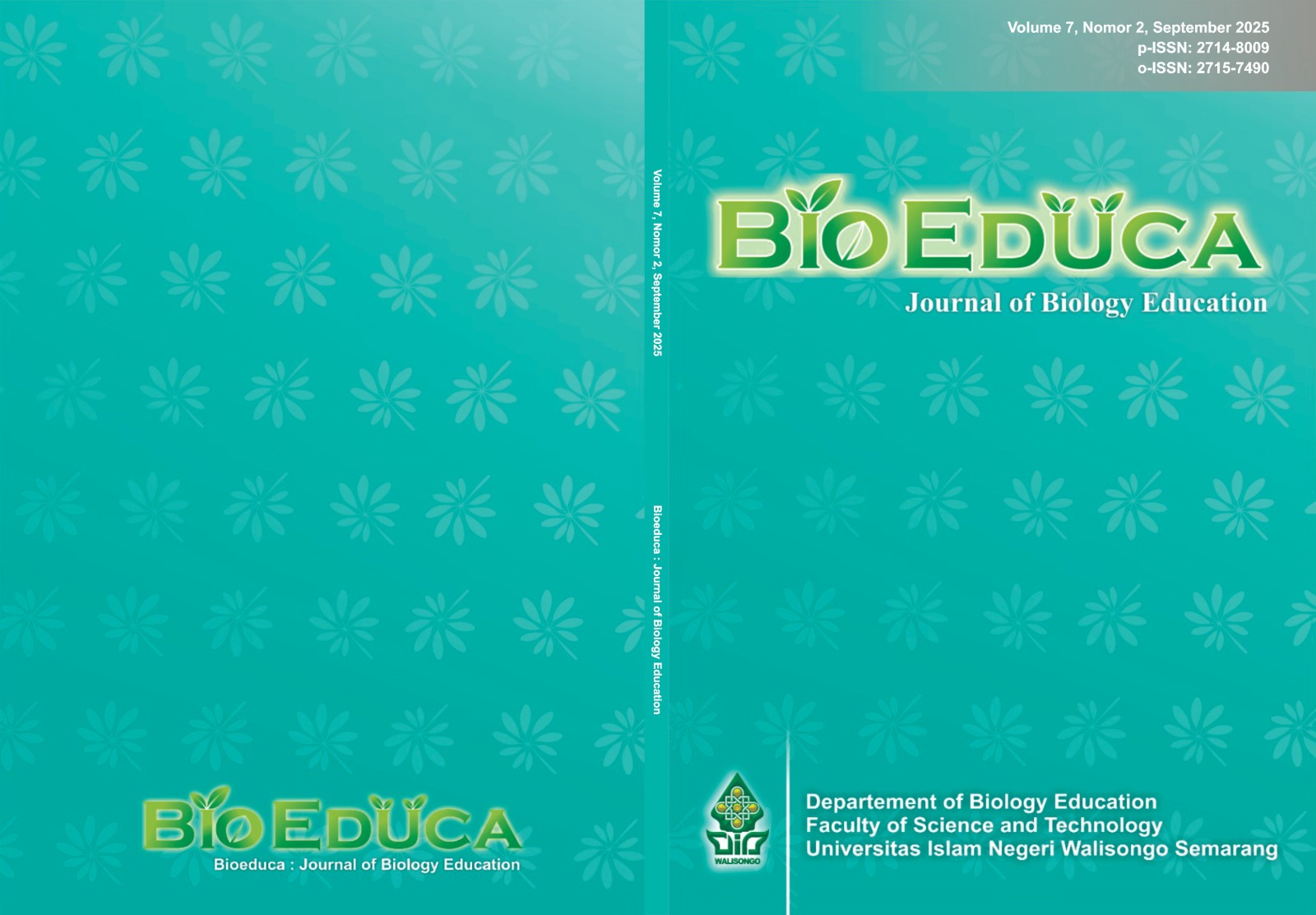The Effect of Implementing Problem-Based Learning (PBL) Model Assisted by Problem-Based LKPD on Students' Learning Outcomes in Motion Systems Material
Main Article Content
Abstract
This study aims to determine the effect of the Problem-Based Learning (PBL) model assisted by problem-based worksheets on the learning outcomes and cognitive abilities of students in the motion system subject in class XI at SMA Negeri 1 Bahorok in the 2025/2026 academic year. This quasi-experimental study with a pretest and posttest control group design involved 72 students selected through simple random sampling. Class XI-1, as the experimental group, received PBL learning assisted by problem-based worksheets, while class XI-3, as the control group, received direct learning (lectures). The results of the study showed an increase. The average score increased from 37.31 to 72.78 in the experimental class (61.11% mastery) and from 41.11 to 55.00 in the control class (19.44% mastery). Overall, the N-Gain of the experimental class was g = 0.57 (57%, moderate), higher than that of the control class, g = 0.23 (23%, low). At the C4-C6 cognitive level, the experimental class showed N-Gain C4 = 0.60 (60%, moderate), C5 = 0.51 (51%, moderate), and C6 = 0.70 (70%, high)—consistently exceeding the control class (C4 = 0.30; C5 = 0.16; C6 = 0.09). Thus, the application of PBL assisted by problem-based LKPD had a positive effect on the learning outcomes and cognitive abilities of students.
Downloads
Article Details

This work is licensed under a Creative Commons Attribution-ShareAlike 4.0 International License.
The copyright of the received article shall be assigned to the journal as the publisher of the journal. The intended copyright includes the right to publish the article in various forms (including reprints). The journal maintains the publishing rights to the published articles. Authors are allowed to use their articles for any legal purposes deemed necessary without written permission from the journal with an acknowledgment of initial publication to this journal.

This work is licensed under a Creative Commons Attribution-ShareAlike 4.0 International License.
References
Aini, N. A., Sultan, U., Tirtayasa, A., & Hendracipta, N. (2019). PENGEMBANGAN LKPD BERBASIS PROBLEM BASED LEARNING PADA MATA PELAJARAN IPA MATERI GAYA A. Syachruroji. Jurnal Pendidikan Dasar, 10(1), 68–76. https://doi.org/10.21009/JPD.010.07
Arends, R. I. (2012). Learning to Teach (Belajar untuk mengajar). Pustaka Belajar.
Arikunto, S. (2013). Prosedur Penelitian:Suatu Pendekatan Praktik. Jakarta: Rineka Cipta.
Bergstrom, C. M., Pugh, K. J., Phillips, M. M., & Machlev, M. (2016). Effects of Problem-Based Learning on Recognition Learning and Transfer Accounting for GPA and Goal Orientation. The Journal of Experimental Education, 84(4), 764–786. https://doi.org/10.1080/00220973.2015.1083521
Bilodi, A. K. (2019). Problem Based Learning. International Journal Of Scientific Research, 8(9), 57–58.
Kementrian Pendidikan dan Kebudayaan. (2020). Buku Panduan Merdeka Belajar-Kampus Merdeka.
Kurt, U., & Sezek, F. (2021). Investigation of the Effect of Different Teaching Methods on Students’ Engagement and Scientific Process Skills. International Journal of Progressive Education, 17(3), 86–101.
Mardapi, D. (2017). Pengukuran Penilaian dan Evaluasi Pendidikan Edisi 2. Parama Publishing.
Nasir, D., Daud, F., Palennari, M., Martiani, A., Atirah, N., Studi, P., Sarjana, P., Biologi, P., Negeri Makassar, U., Biologi, J., Matematika, F., Ilmu, D., & Alam, P. (2023). Pengaruh Penggunaan LKPD Berbasis Masalah terhadap Keterampilan Proses Sains dan Hasil Belajar Biologi Peserta Didik SMA Negeri 5 Maros. UNM Journal of Biological Education, 7.
Saleh, A., Hmelo-Silver, C., Chen, Y., Shanahan, K., Rowe, J., & Lester, J. (n.d.). Scaffolding Peer Facilitation in Computer-Supported Problem-Based Learning Environments.
Sanjaya, W. (2014). Strategi Pembelajaran Berorientasi Standar Proses Pendidikan (XI). Kencana Prenamedia.
Santoso, S. (2018). Menguasai Statistik dengan SPSS 25. Jakarta : PT. Elex Media Komputindo.

